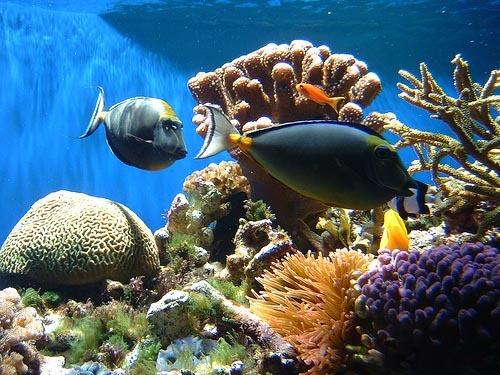UN: Coral reef needs coordinated protection
A new United Nations report urges a global partnership, backed by commitment and resources, to tackle the threats posed to coral reefs by climate change, including damage from increasingly severe tropical cyclones and ocean acidification.
 |
|
Coral reefs are often referred to as the rainforests of the ocean. [File photo] |
About 20 per cent of the original area of coral reefs has been lost, with a further 25 per cent threatened in the next century, according to the report "Climate, Carbon and Coral Reefs" by the World Meteorological Organization (WMO) and the Convention on Biological Diversity (CBD).
Tropical coral reefs cover about 0.2 per cent of the world's ocean, contain about 25 per cent of marine species and are worth an estimated $30 billion annually to the global economy in terms of coastline protection, tourism and food.
For the past 20 years, they have been "under siege" from a growing global threat: increasing concentrations of carbon dioxide in the atmosphere, the two UN bodies said in a joint press release.
"High CO2 emissions lead to 'double trouble' for coral reefs," states the report, which was launched at the 10th meeting of the Conference of the Parties to the CBD (COP-10), which is currently taking place in the Japanese city of Nagoya.
"First, the trapping of heat in the atmosphere leads to ocean warming which can cause extensive coral bleaching events and mass mortalities. The global devastation of coral reefs from record warming of the sea surface in 1997/1998 was the first example of what is likely to occur in the future under a warming climate.
"Second, high CO2 levels lead to ocean acidification which reduces the ability of the coral reefs to grow and maintain their structure and function."
The report calls for more financial and technical development assistance for the protection of coral reef ecosystems, and makes a number of recommendations for future action, such as the need for meteorologists to be well informed about the potential impacts of weather and climate events on coastal and coral reef ecology.
It also recommends that concise summary reports on the global carbon threats, together with the ongoing regional and local disturbances to the world's coral reefs, be presented to policy makers and governments, and that further research and investment are needed to improve the ability to assess and predict the impacts on coral reef systems of climate change and associated extreme events.
 0
0 







Go to Forum >>0 Comments